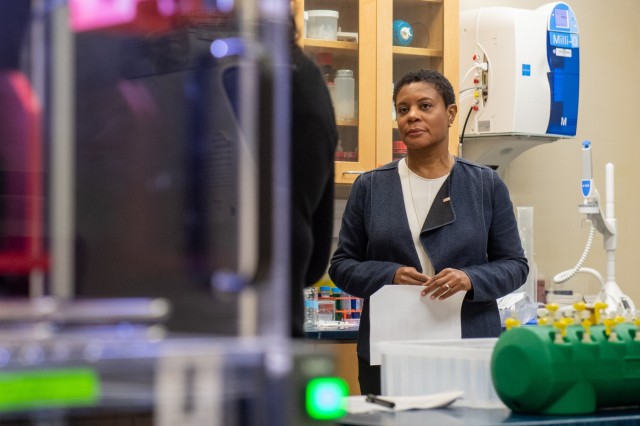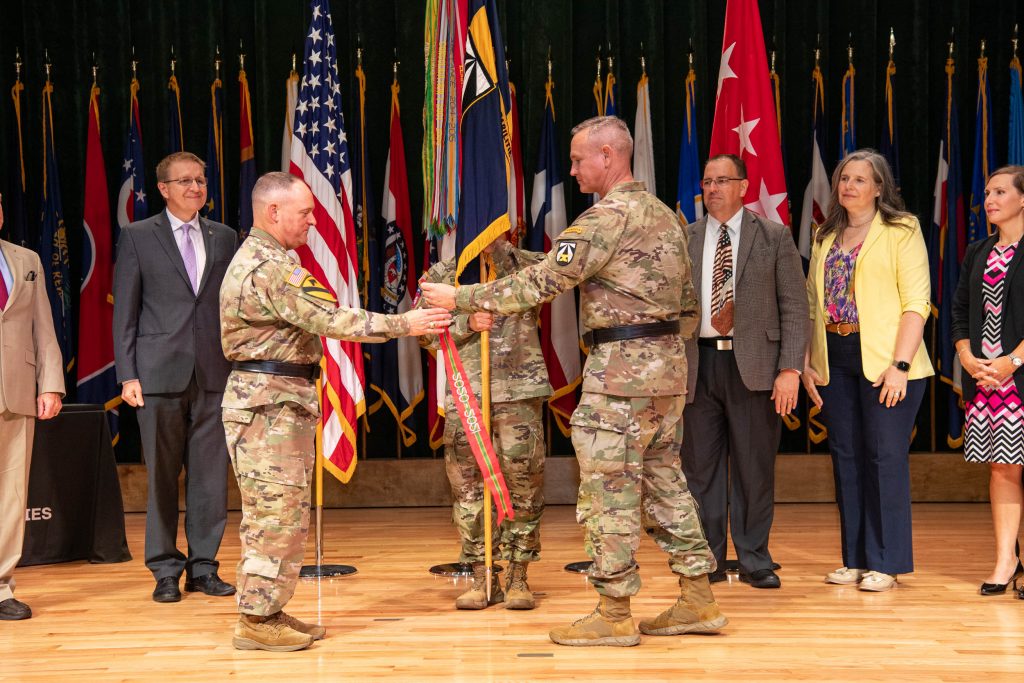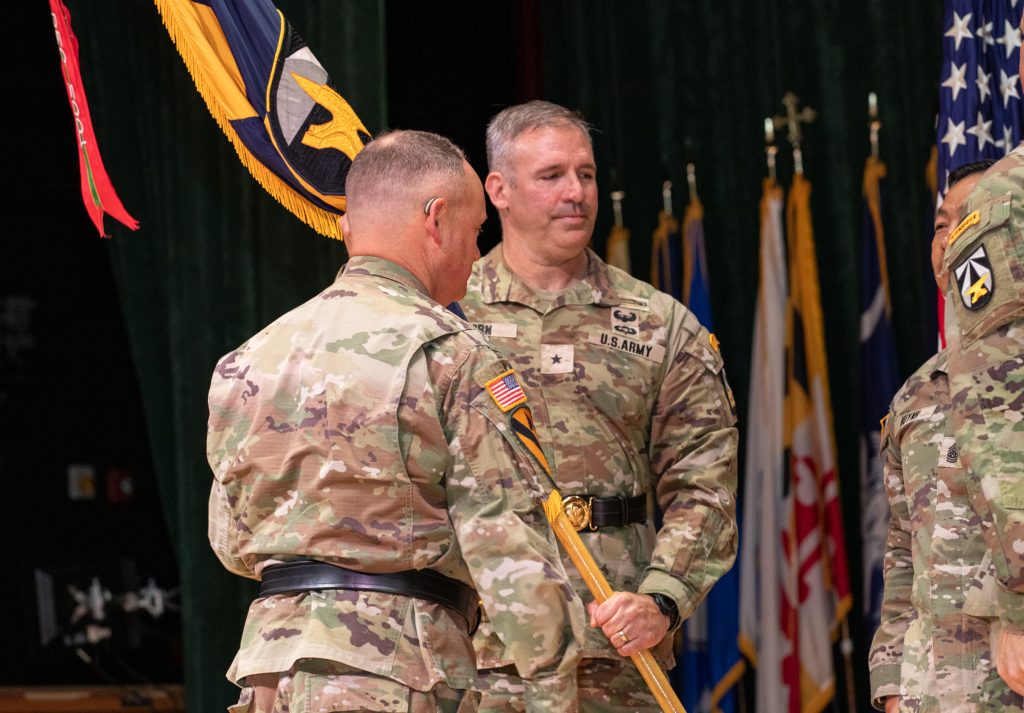White House Office of Science and Technology Policy director visits with Army researchers
August 25, 2022By U.S. Army DEVCOM Army Research Laboratory Office of Strategic Communications
ADELPHI, Md. – A group of 20 scientists and policymakers from the White House Office of Science and Technology Policy, met with Army researchers for a day of laboratory tours and discussions at the U.S. Army Combat Capabilities Development Command, known as DEVCOM, Army Research Laboratory’s Adelphi Laboratory Center Aug. 23.
The visitors, led by Dr. Alondra Nelson, who is performing the duties of director of OSTP, and Dr. Morgan Dwyer, head of OSTP’s National Security division, listened to an overview briefing about the laboratory.
DEVCOM ARL, as part of the Army Futures Command, is the Army’s foundational research laboratory focused on operationalizing science to ensure overmatch in any future conflict.
DEVCOM ARL Director Dr. Patrick Baker told the group that the lab’s goal is to “turn science into something that is truly transformational.”
Nelson and the White House scientists toured the laboratory’s cleanroom facility where Army scientists are on the leading edge of chip fabrication through foundational research. They also met with the lab’s synthetic biologists and quantum scientists and met with researchers working on artificial intelligence and machine learning.
They were briefed on how DEVCOM ARL established its regional hubs and cooperative relationships with leading universities around the country. Much of the discussion centered on best practices for building a diverse workforce and promoting a strong national security innovation base.
“The President and the Vice President are deeply committed to science,” Nelson said. “Many of the administration’s highest priorities, including economic and national security, educational opportunity, and accessible healthcare are linked to scientific research and innovation.”
Nelson pointed to recent legislation signed into law, the CHIPS and Science Act, that will “boost American semiconductor research, development and production, ensuring U.S. leadership in the technology that forms the foundation of everything from automobiles to household appliances to defense systems,” according to a White House Fact Sheet.
Nelson leads OSTP’s six policy divisions in their work to advance critical Administration priorities on Climate and Environment, Energy, Health and Life sciences, National Security, Science and Society, and Technology.
The White House team also learned how Army research contributed to the COVID-19 fight. The Army Futures Command played a vital role in the government’s pandemic response. Elements of AFC, the U.S. Army Medical Research and Development Command, and the DEVCOM, both contributed solutions in response to COVID-19.
“We were just one in the effort,” said Army researcher Dr. Dimitra Stratis-Cullum, essential research program manager for Transformational Synthetic Biology for Military Environments at the laboratory. “Because of our proximity, we were on the front lines working and sharing with others.”

As the Army’s foundational research laboratory, ARL is operationalizing science to achieve transformational overmatch. Through collaboration across the command’s core technical competencies, DEVCOM leads in the discovery, development and delivery of the technology-based capabilities required to make Soldiers more successful at winning the nation’s wars and come home safely. DEVCOM Army Research Laboratory is an element of the U.S. Army Combat Capabilities Development Command. DEVCOM is a major subordinate command of the Army Futures Command.








